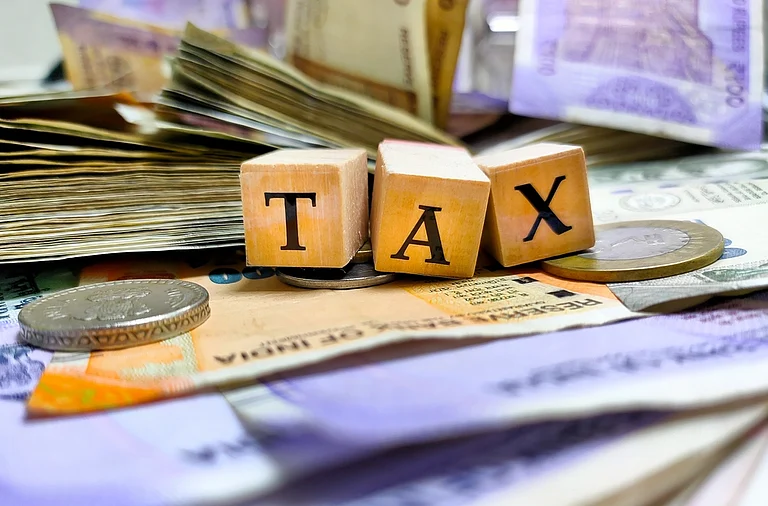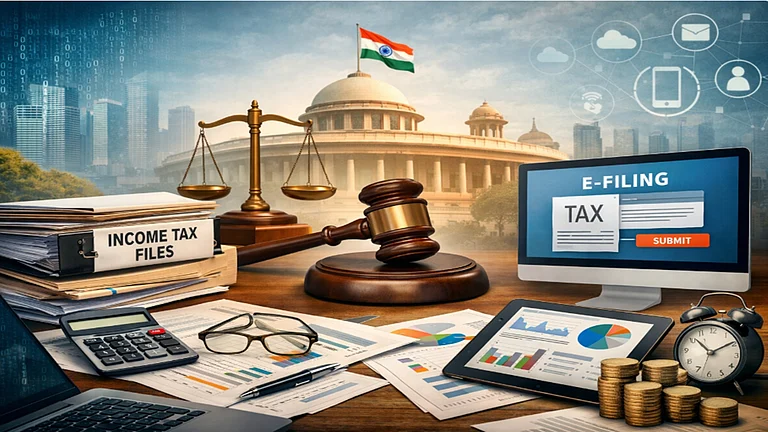CBDTAs the advance tax deadline of September 15 approaches, it is important to be aware of the consequences of not meeting the deadline. Advance tax is the amount of income tax payable at various intervals during the financial year (FY) following the concept of ‘pay as you earn.
“If one estimates that their tax on income (other than income on which taxes have been withheld, e.g. salary income on which tax deducted at source (TDS) is deposited by the employer) exceeds Rs 10,000 for an FY, one is liable to pay advance tax. Senior citizens (individuals aged 60 or more) are not required to pay advance tax if they do not have any income from business or profession,” says Alok Agarwal, Partner, Deloitte India.
The due dates for payment of advance tax installments are June 15, September 15, December 15, and March 15 of a financial year.
“Advance tax is computed on the consolidated income earned and expected to be earned from various sources (i.e., salary income, rent income, interest income, etc.) during the financial year, after adjusting the applicable deductions, exemptions, TDS/TCS (tax collected at source) credit, etc,” says Suresh Surana, a Mumbai-based chartered accountant.
One is required to estimate the total income for the FY, consider the applicable deductions, and tax credits, and compute the tax liability for the FY. Thereafter, the tax is required to be paid in the following manner:
| Due date | Advance Tax Payable |
| On or before 15 June | 15% |
| On or before 15 September | 45% |
| On or before 15 December | 75% |
| On or before 15 March | 100% |
Source: Deloitte
What Are The Penalties For Not Paying Advance Tax On Time
Taxpayers failing to pay their advance taxes in due time would be subject to the following interest consequences:
Interest U/S 234B Of The IT Act
“A taxpayer who is liable to pay advance tax u/s 208 of the IT Act has either failed to pay the advance tax or the advance tax paid by the taxpayer is less than 90 per cent of the assessed tax, would be liable to pay simple interest at one per cent per month or part of a month for default in payment of advance tax,” says Surana.
Such interest would be computed from the first day of the assessment year, i.e., from 1st April till the date of determination of income under section 143(1) or when a regular assessment is made, then till the date of such a regular assessment. One may note that any tax paid till 31st March will be treated as advance tax,”
Further, interest would be calculated on the amount by which the advance tax paid falls short of the assessed tax. However, in case the advance tax is not paid at all, the interest would be computed on the entire assessed tax.
Interest U/S 234C Of The IT Act
Section 234C of the IT Act provides for a levy of interest for default in payment of installment(s) of advance tax. Such interest would be levied at one per cent simple interest per month or part of a month for short payment/ non-payment of individual installment (s) of advance tax. Interest u/s 234C in case of deferment of different installments of advance tax would be levied as follows:
| Due date of Installment | Amount Payable | Minimum Amount Payable for Non-applicability of Interest u/s 234C of IT Act | Interest Payable u/s 234C of IT Act |
| On or before 15th June | 15% | 12% | 1% x 3 months x shortfall in tax |
| On or before 15th September | 45% | 36% | 1% x 3 months x shortfall in tax |
| On or before 15th December | 75% | 75% | 1% x 3 months x shortfall in tax |
| On or before 15th March | 100% | 100% | 1% x 1 month x shortfall in tax |
Source: RSM India
In case of taxpayers opting for a presumptive taxation scheme u/s 44AD or 44ADA of the IT Act, interest shall be levied if advance tax paid on or before 15th March is less than 100 per cent of advance tax payable.
Interest shall not be levied on the shortfall if the taxpayers have paid the minimum amount payable on or before the specified due dates.
Also, a taxpayer shall not be liable to any interest liability u/s 234C of the IT Act if the shortfall in payment of tax is due to certain specified incomes such as capital gains, casual winnings such as winnings from the lottery, crossword puzzles, etc. and the taxpayer pays the required advance tax on such income as a part of immediate following installments or till 31st March, if no installment is pending.
“Non-payment of advance tax can pose a cash flow issue i.e. to pay a substantial amount of tax along with interest at the year-end/at the time of filing of tax return,” adds Agarwal.















